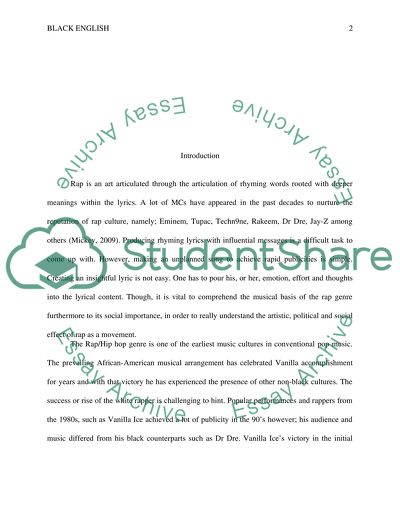Cite this document
(“How Authentic Black English in White rappers lyrics Research Paper”, n.d.)
Retrieved from https://studentshare.org/english/1692394-how-authentic-black-english-in-white-rappers-lyrics
Retrieved from https://studentshare.org/english/1692394-how-authentic-black-english-in-white-rappers-lyrics
(How Authentic Black English in White Rappers Lyrics Research Paper)
https://studentshare.org/english/1692394-how-authentic-black-english-in-white-rappers-lyrics.
https://studentshare.org/english/1692394-how-authentic-black-english-in-white-rappers-lyrics.
“How Authentic Black English in White Rappers Lyrics Research Paper”, n.d. https://studentshare.org/english/1692394-how-authentic-black-english-in-white-rappers-lyrics.


